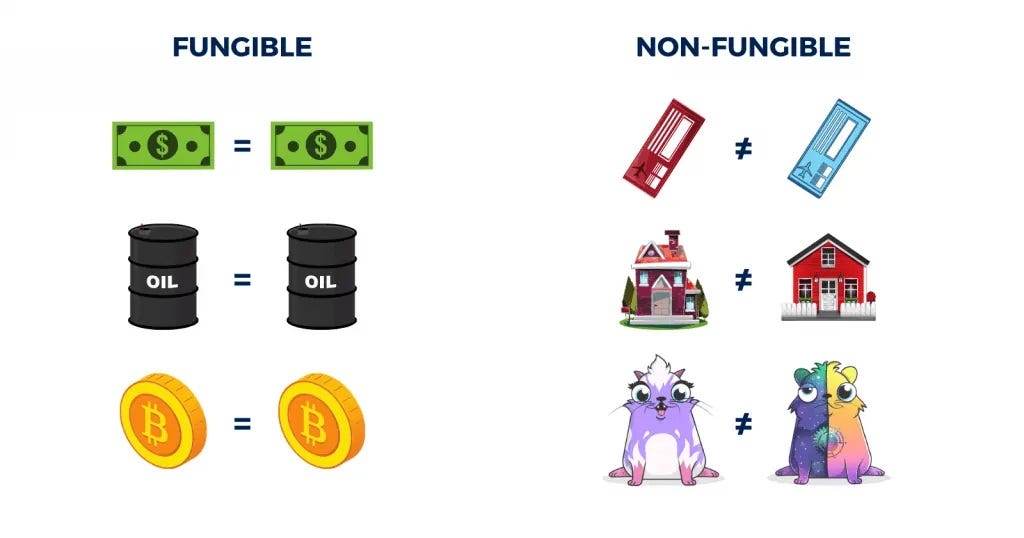Over the past decade, cryptocurrencies have shifted from a niche technological development to new financial instruments. Crypto assets represent a new class of borderless, decentralized digital currency. As established financial institutions embrace cryptocurrencies, it is paramount to understand why they are a sought-after topic.
What is cryptocurrency?

In their simplest form, cryptocurrencies are a form of digital assets tied to a blockchain. They were developed as an alternative to government-owned fiat currency.
Cryptocurrencies are code-based and native to a blockchain protocol. This means that all transactions can be identified on the blockchain.
Why is cryptocurrency such a hot topic?
Cryptocurrencies might be difficult to understand because they are not rooted in traditional finance. There is a lot of debate about the value cryptocurrencies bring to the global market, primarily where the argument is against unregulated assets.
The utility cryptocurrencies provide is unparalleled, given that they adhere better to digital norms. Cryptocurrencies were not created in anticipation of a new internet era. Yet, decentralization and cryptocurrencies have become prime contenders to resolve the current fallbacks of Web 2.0.
They’ve become a hot topic because they are still a work in progress, and many users don’t see beyond their speculative value. In addition, cryptocurrencies harken back to the dot.com bubble as they operate in an unregulated market, creating more uncertainty for retail and institutional investors.
The blockchain sector is expected to grow from $4.67 billion in 2021 to over $7.18 billion in 2022, and cryptocurrency’s utility is poised to transcend its speculative means.
What is the difference between the types of cryptocurrency?

Cryptocurrencies are designed to be transferred between users. New cryptocurrencies fill specific roles in the decentralized ecosystem and help expand their global utility.
By default, cryptocurrencies are digital assets that can be exchanged or transferred on the same protocol. Bitcoin and other stand-alone cryptocurrencies developed a peer-to-peer tender system where there was no need for intermediaries.
As the blockchain space has developed, cryptocurrencies have gained new utilities. For example, smart-contract platforms like Ethereum revolutionized the cryptocurrency market by implementing programable conditions. Developers could then automate financial products to be self-sufficient and enact contracts between users without the need for intermediaries.
Cryptocurrencies that act as off-chain and on-chain connectors have also been developed. Without off-chain data, smart contracts’ abilities would become limited. Thus, decentralized oracle networks use crypto to connect data and increase the utility of smart contracts by providing accurate and quality data.
Is cryptocurrency related to the blockchain?
Cryptocurrencies cannot exist without a blockchain, given that they act as the utility tokens for each blockchain. Therefore, cryptocurrency transaction information is dissipated across multiple networks as the nature of blockchain technology decentralizes data and creates a permissionless network accessible to anyone.
As stated, cryptocurrencies serve vital functions in their native blockchain. Native cryptocurrencies help in ensuring network security. By locking tokens (in the proof of stake consensus mechanism), the network validates transactions by adding new transaction blocks to the blockchain.
What are examples of current cryptocurrency usage?

Peer-To-Peer Transfer
Bitcoin was created to cut out the middleman in digital transactions. Tokens like BTC or stablecoins such as USDT and USDC have the primary purpose of transferring value from one person to another.

Verifying Transactions and Ownership
NFTs are a new type of cryptocurrency. While BTC is a fungible token, NFTs are non-fungible, meaning they cannot be fractionalized and transferred. Instead, their role is to enable token owners to prove asset ownership and can be connected to a piece of digital or physical assets.
Financial Industries
Decentralized finance is another way of using cryptocurrencies. They provide value to the unbanked population or those who don’t have regulated and accepted physical assets. Users can interact with new financial products and use platform-native cryptocurrencies to obtain additional tokens through staking or transaction fees.

Memecoins
These are tokens whose goal is purely speculative. Much like the rest of cryptocurrencies, which derive value from the greater fool theory (of overvalued assets), meme coins have no utility aside from being a speculative asset.
How will cryptocurrency impact business models?
While cryptocurrencies have yet to be adopted at a macroeconomic level, they’ve proven to be of interest to tech-oriented firms.
Cryptocurrencies allow for the creation of new ways of conducting economic activities. For instance, new business models are no longer restricted to national borders. In addition, using cryptocurrencies could remove economic friction between buyers and sellers as it generates a trustless ecosystem.
This line of thinking implies that a new business model need not view financial risk as a liability. Moreover, cryptocurrencies could empower the rise of new economic sectors, especially in the cultural and financial fields, where they may entrust new users to access a previously inaccessible financial sector.
New business models may even revolve around the use of cryptocurrencies for financial reasons and for implementing crypto and blockchain functionalities to build trust in their future products.
